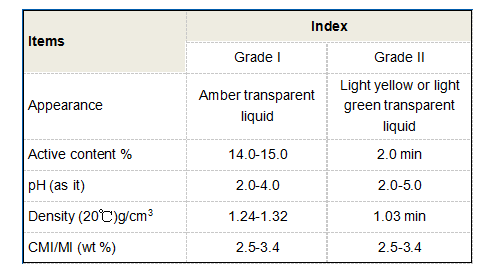Effective Water Treatment Solutions for Scale Inhibition and Improved System Performance
Scale Inhibitor Water Treatment Ensuring Efficient Water Systems
Water is a vital resource for both industrial and residential applications. However, as it travels through pipes, it often carries minerals that can lead to scaling—a process where mineral deposits build up on surfaces, especially in systems that involve heat exchange, such as boilers and cooling systems. Scaling can not only diminish the efficiency of these systems, increasing operational costs, but can also lead to system failures and costly repairs. To combat this, scale inhibitors have become essential components in water treatment processes.
Understanding Scale Formation
Scale typically forms in areas where water is heated or evaporated, leading to the precipitation of minerals like calcium carbonate, calcium sulfate, barium sulfate, and silica. Factors such as temperature, pressure, and the concentration of dissolved ions play a crucial role in determining the rate and extent of scale formation. As the scale accumulates, it can restrict flow, reduce heat transfer efficiency, and ultimately lead to significant downtime and maintenance challenges.
The Role of Scale Inhibitors
Scale inhibitors are chemical agents designed to prevent scale from forming or to dissolve existing scale deposits. These substances work by interfering with the crystal growth process of mineral deposits, effectively altering the solubility of the minerals involved. By incorporating scale inhibitors into water treatment systems, industries can maintain optimal performance and extend the lifespan of their equipment.
There are various types of scale inhibitors, each with unique mechanisms of action. Common examples include polyacrylate, phosphonates, and phosphates. Polyacrylate, for instance, functions by dispersing crystals and preventing them from adhering to surfaces, while phosphonates can inhibit the nucleation and growth of scale-forming minerals.
scale inhibitor water treatment

Applications in Different Industries
The use of scale inhibitors is widespread across various industries. In the oil and gas sector, scale inhibitors help manage scale formation in production wells and pipelines, thereby maintaining flow efficiency. Power plants rely on scale inhibitors to protect cooling systems and heat exchangers from deposits that can cause overheating and inefficiencies. Additionally, in industrial water treatment applications, scale inhibitors are often used in reverse osmosis systems to enhance water recovery rates and maintain membrane integrity.
Residential applications also benefit from scale inhibitors, particularly in areas where hard water is prevalent. Homeowners can use water softeners or scale-inhibiting systems to prevent limescale build-up in plumbing, appliances, and fixtures. This not only improves water quality but also extends the life of household systems.
Environmental Considerations
While scale inhibitors are crucial for operational efficiency, their use also raises environmental concerns. Some traditional scale inhibitors can lead to harmful byproducts when released into the ecosystem. As a result, there is a growing trend toward finding more environmentally friendly alternatives, such as organic inhibitors and biodegradable options that effectively manage scale without harming the environment.
Conclusion
In summary, scale inhibitors play a critical role in the effective treatment of water across various sectors. By preventing scale formation, these chemicals help industries operate more efficiently, reduce maintenance costs, and increase the longevity of equipment. As technology evolves and environmental considerations become paramount, the development of new, greener scale inhibitors will be essential to ensure that water treatment processes remain sustainable for future generations. Whether in an industrial setting or at home, scale inhibitors are vital in maintaining the efficiency and reliability of our water systems.
-
Water Treatment with Flocculant Water TreatmentNewsJun.12,2025
-
Polymaleic AnhydrideNewsJun.12,2025
-
Polyaspartic AcidNewsJun.12,2025
-
Enhance Industrial Processes with IsothiazolinonesNewsJun.12,2025
-
Enhance Industrial Processes with PBTCA SolutionsNewsJun.12,2025
-
Dodecyldimethylbenzylammonium Chloride SolutionsNewsJun.12,2025





